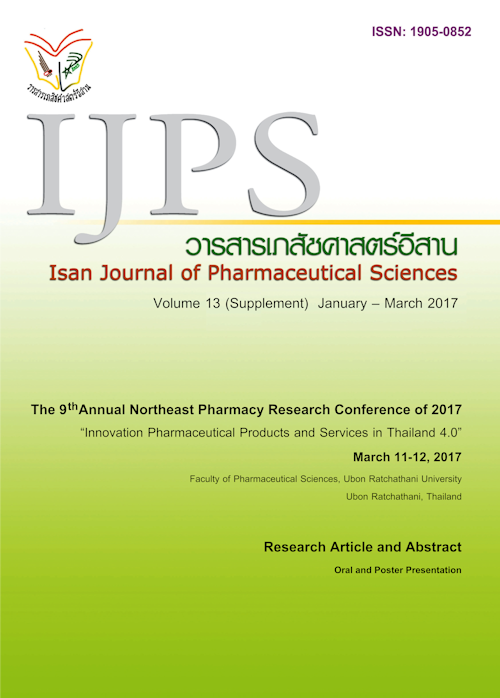Comparison of Techniques Used to Collect Calcium Consumption Data among Secondary Students: Interview Method and Self-Record Method
Main Article Content
Abstract
Introduction: Selecting appropriate tools and data collection techniques is a crucial step in the process of research designing. This study aimed to compare two techniques used to collect calcium consumption data among Secondary Students, i.e. Interview method and self-record method. Methods: Samples were 50 secondary students in one school, recruiting with systematic random sampling. Data collecting tools were a 24 hours recalled of food consumption interview form and a prospective three day food consumption self-record form. The amount of calcium being consumed per day was analyzed by INMUCAL- Nutrients software. The correlations among the amount of calcium consumption was analyzed, using Spearman[s Rho. Results: Fifty students (100%) agreed to be interviewed. Numbers of students recorded their food consumption in the first, second and third day were 43, 42 and 42 respectively. Only 40 students completed their recorded of 3 day consumption. The median amount of calcium being consumed per day (milligram) collected from the interviews was 324.45, and from the first, second and third day self-record were 224.49, 229.73 and 228.00 respectively. Conclusion: An interview of a 24 hours recalled of food consumption technique appeared to minimize the bias due to under reporting. However, this technique may not be suitable to collect data from a large numbers of secondary students as it required several interviewers and therefore the data obtained from this technique may be prone to bias due to interpersonal (interviewers) variation. In case where a researcher decides to use a prospective self-record food consumption, our findings suggest that collecting the food consumption for 1 day, in a normal day with no special event that eating is involved, would yield the same result as collecting the data for 3 days.
Article Details
In the case that some parts are used by others The author must Confirm that obtaining permission to use some of the original authors. And must attach evidence That the permission has been included
References
Buppasiri M, KanjanarachT,Jaisaard R. A survey of food consumption behavior and sources of calcium of secondary students in KhonKaen province for osteoporosis prevention management. MBA-KKU J 2016; 9(1):187-199.
Chirawatkul Aroon. Designing a Questionnaire for Research. Bangkok: June Publishing ;2013.
Institute of Nutrition, Mahidol University.INMUCAL V.3, 2013.
Sriring P, Kanjanarach T. Development and validation of a scale for attitudes towards calcium consumption. Asian Biomed 2014; 8(6):751-758.


